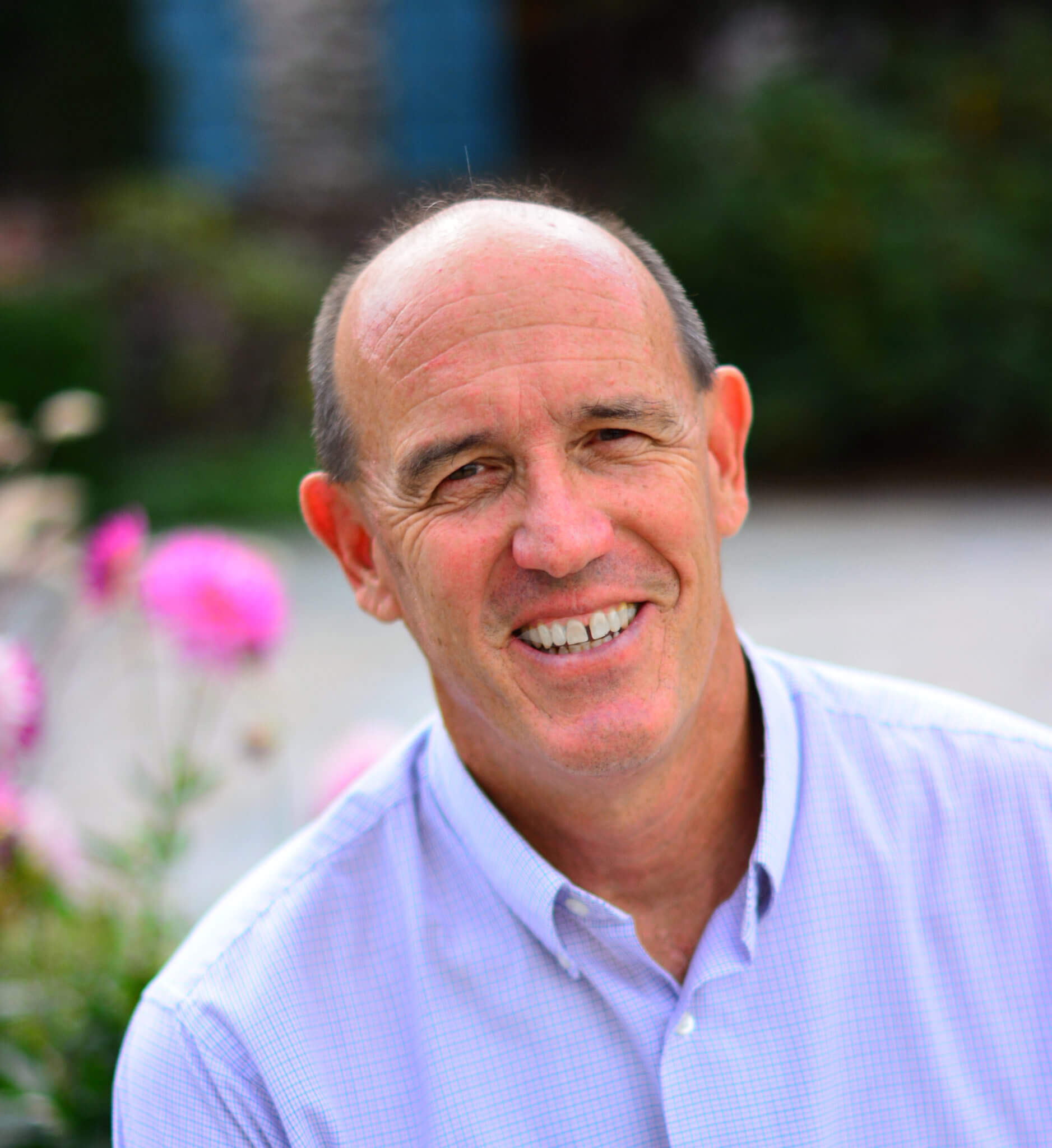…if there is a constant that we want to embed in every facet of the learning trajectory, it is to help students develop the skills and confidence to investigate and identify their personal sense of purpose as it will evolve throughout their lives.
Grant Lichtman, Author and Education Consultant
Transformation across education has accelerated over the last 20 years, driven by one unavoidable and objectively true condition: the world is changing at a rate that’s never been seen at any point in human history. This quickening is often spoken about using the acronym “VUCA,” which describes a world that is volatile, uncertain, complex, and ambiguous.
Our conventional school system was designed to prepare students to live in a relatively predictable future; the opposite of a VUCA world. “Better-late-than-never” recognition of this misalignment has driven school communities across a broad range of geography and demographics to begin changing how we educate our young people. For most, those changes include learning that is driven less by content regurgitation, and more by collaborative, inquiry-based, and student-centric ideals, helping students build skills to find and solve real world problems.
But, there is a major shortfall with even these more dynamic learning models. Recognition of a VUCA world is driving the change, but there is still a propensity to aim students toward the same outcomes the conventional system has always targeted—better grades, denser content, higher test scores, and increased graduation rates.
To deal with a VUCA world, we need to balance the driving forces of VUCA on the one side with VUCA-demanded outcomes on the other.
The Antidote: Meaning and Purpose
Understanding that we live in a VUCA world is only half of an “equation.” VUCA describes a profound condition, but it doesn’t automate a reflection on the two biggest questions that have the power to truly transform education as we most commonly know it today: What is the meaning of meaning? And, what is the purpose of purpose?
For schools and school leaders, these should not be hypothetical questions or lofty philosophy. In fact, I believe they are the opposite; questions that should be driving deep, rich discussions with long-term implications within our school communities. When basic content knowledge is available on a mobile phone, and when the shelf life of some of that knowledge is decreasing every day, particularly in rising-demand fields like science and technology, meaning and purpose may be our only universal antidotes to VUCA.
Dr. Anthony Burrow, author of The Ecology of Purposeful Living Across the Lifespan, describes meaning as “looking backward; making sense of the world as it happened or is happening.” The pursuit of “meaning” in education represents that which allows our students to make sense of the world with the benefit of what EE Ford Foundation’s Executive Director John Gulla calls, “the cultural/aesthetic/scientific/
metaphysical accumulation of all who have gone before.” The meaning of meaning is not an abstraction: we learn literacy and numeracy, science and art, literature and languages for the very important task of navigating the world in which we live.
…there is substantial evidence that having purpose, more so than strong test scores, leads to the outcomes of success and happiness that most of us want for our students and ourselves.
Grant Lichtman, Author and Education Consultant
Complementary to meaning is purpose. Dr. Burrow suggests “purpose is about looking forward, aspiring or intending to accomplish something that is ahead of you. It is an intentionality or a life aim; it is always in front of you; you are never going to actually accomplish it.”
Finding purpose may be the most important learning outcome we can set students up to achieve; surely it is a key ingredient in helping our students inquire into the most universally human question: “Who am I?”
Viktor Frankl, author of the iconic Man’s Search for Meaning says that prisoners in WWII concentration and prisoner of war camps who felt they had a future purpose either for themselves or others were more likely to survive than those who did not.
Using a different word for the same apparent outcomes, Matthew Riggan, co-founder of the Workshop School in Philadelphia defines the critical skill of “agency” as that which helps students “know how to shape their lives and our world;” it is “probably the single most important outcome we’re after.”
In Teaching for Purpose, Dr. Heather Malin of the Stanford University Center on Adolescence defines purpose as “a higher-order goal that is general and driving, such as a desire to help others or protect the environment, in contrast with more specific goals that provide avenues for pursuing purpose, such as getting into nursing school or starting a recycling program in your neighborhood.” Most importantly, says Malin, purpose is “motivated by a desire to be of consequence in the world.”
Both Dr. Burrow and Dr. Malin report on extensive research that found that people with a sense of purpose in their lives are physically and mentally healthier, live longer, are happier, have more and richer social connections, and are more well-liked and admired by their peers. In other words, there is substantial evidence that having purpose, more so than strong test scores, leads to the outcomes of success and happiness that most of us want for our students and ourselves.
Balancing the Equation
Having gathered input from thousands of educators, parents, and students about what they value most in a learning experience, I would argue, with one big caveat, that helping students find purpose is at the top of our collective aspirations. The big caveat is that for families who struggle to move beyond current or multi-generational poverty, top aspirations for their kids involve safety, security, and access to post-secondary education that is highly correlated to future earning potential.
When the National Association of Independent Schools surveyed parents with the question, “What job is your school being hired to do?” they found strong convergence around responses like: “Motivate my child to find and pursue their passion,” “Give my child opportunities to impact the world in positive ways,” and “Help my child to fulfill their potential.”
How does this evidence compare to the stress and anxiety we currently trigger within our kids when suggesting (or enforcing) that they must go to the best college in order to succeed in life? And, that getting there requires perfect scores on everything they are assigned or tested on? Are we willing to drop this narrow and misaligned notion of success and voice our real goals (as cited in the paragraph above) for our children? Are we willing to accept that the traditional lifelong safety nets provided by access to elite colleges, “good” jobs, and top salaries are increasingly subject to VUCA?
If a single virus can disrupt schools, jobs, companies, industries, global supply chains, major economies, and even political systems, will we now feel free to let “get my kid into a top college” slide down the list of parental aspirations?
If the answer is increasingly “yes,” then I believe the right side of a universal education transformation “equation” simply contains the sum of meaning and purpose. With VUCA on the causal side of this relationship and meaning and purpose on the “desired result” side, we only need a symbol in the middle: a new “requires that” sign.
The universal statement we need is something like, “The realities of VUCA that are driving the human condition require that education helps prepare our students with finding and understanding both meaning and purpose.” Or, in shorthand:
VUCA rt M+P
Where “rt” stands for “requires that”
If we adopt something close to Dr. Burrow’s definition of “meaning,” schools have been doing that pretty well. We teach the content that students need to understand how the world got to where it is, and we are at least starting to teach the skills and diverse perspectives that students need to navigate a world that is both VUCA and profoundly not the same for all of us.
Education writ large, however, has rarely integrated “purpose” into its design. For decades, the overwhelming purpose of K-12 education has been to keep students in school, raise their test scores, increase graduation rates, and hope students go to a two or four year college, where many drop out and many others grind through and receive their diplomas only to be staring at crushing debt and no clarity on their purpose in life.
Students’ physical and mental health are worse today than in the past, and there is little evidence that nominal increases in test scores over time have generated any significant pan-societal benefit. And, Dr. Malin reports, just 24% of high school students have a sense of their own individual purpose.
So, Now What?
It is hard to imagine that a school can help its students find their unique purpose if the organization is unclear on its own purpose, or if the purpose of the school does not include purpose-based learning for the students. Is your school community satisfied with teaching meaning alone? If not, you can engage in some initial discussions around embedding purpose deeply into the learning experience:
- Does our school have an organization-wide purpose/mission? If so, is this concrete sense of all-school purpose widely shared and understood?
- Do we help our students find their own purpose, and how do we know we are succeeding?
- Are we willing to reduce some of the time we spend on meaning in order to focus more attention on purpose?
- Do our parents want us to take on this role, and in what ways? What roles do families want to play? What role do community members want to play?
Purpose is the connective context of our humanity; it is not something that should be bolted on to school to be taught in three weeks in 9th grade. While there are a growing number of free and paid resources to help students investigate their purpose, we must take on the challenge of more deeply embedding purpose into the everyday learning experience.
In fact, I would argue, if there is a constant that we want to embed in every facet of the learning trajectory, it is to help students develop the skills and confidence to investigate and identify their personal sense of purpose as it will evolve throughout their lives. This kind of deep embedding requires a second set of questions:
- How can educators help students explore their own values, and make judgments about those values without steering the student into the teacher’s chosen purpose?
- What might a “purpose scaffold” look like across the K-12 learning arc, and how do we embed purpose into our set of practices?
- How can we dramatically increase the number of high school students who leave our care with BOTH the contextual knowledge of “meaning” AND a sense of their own personal purpose?
Many schools will argue that they have something that sounds like purpose in their mission or vision statement. My experience is that, while the words might be there, few schools can demonstrate a shared understanding of what those purpose-like words actually mean, in what ways all-school systemic support exists for reaching this aspiration, or how rich pan-academic purpose-based learning experiences are being implemented at the classroom level.
But, this should not dissuade us. Along with big challenges, the disruption of VUCA provides openings and opportunities that did not exist in the past. Educators and consumers of education hope that students will find deeper meaning and purpose through their years with us; perhaps now is the time to dive into, understand, and balance this equation.

